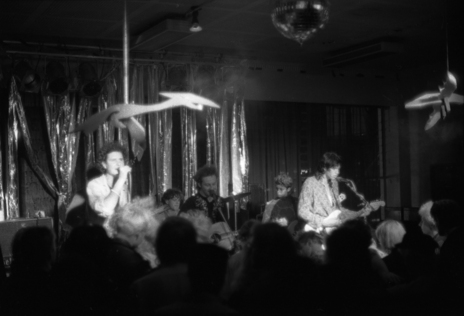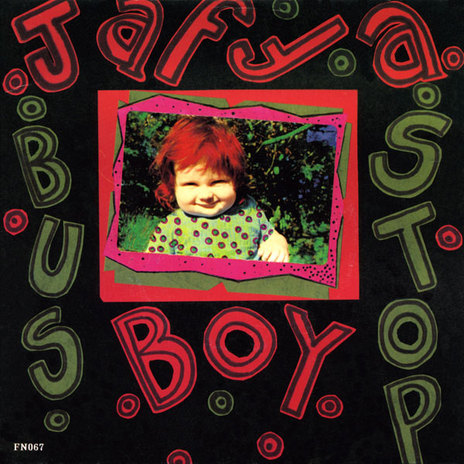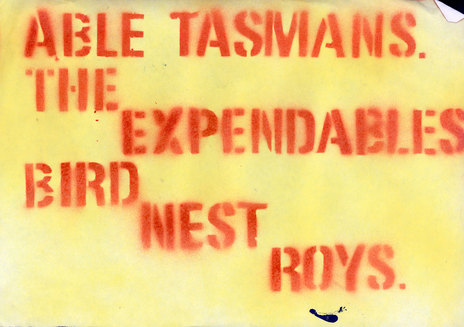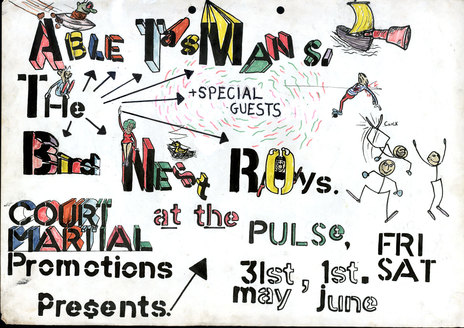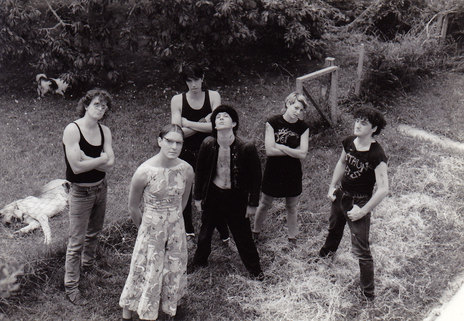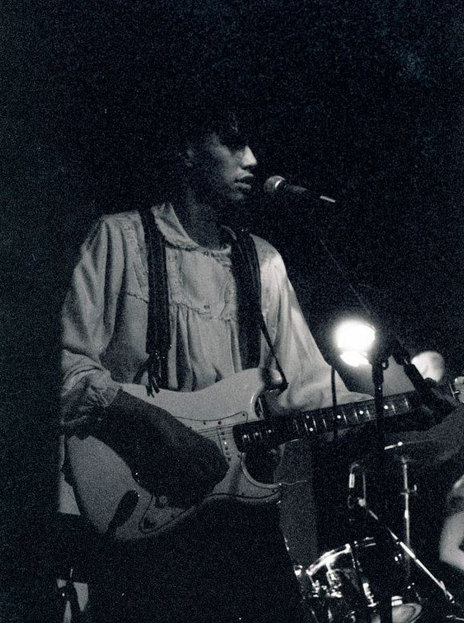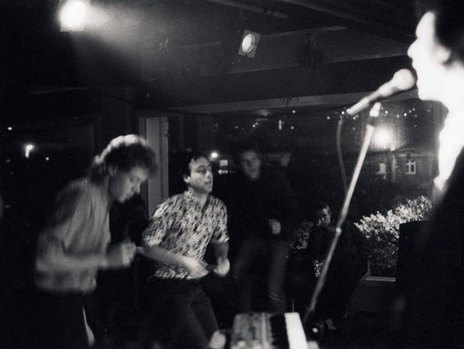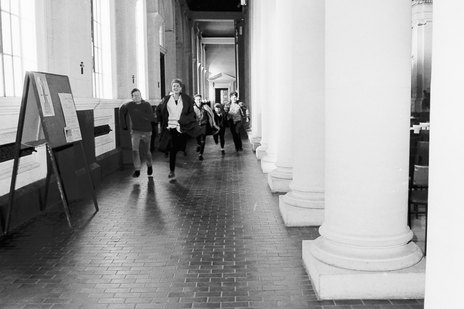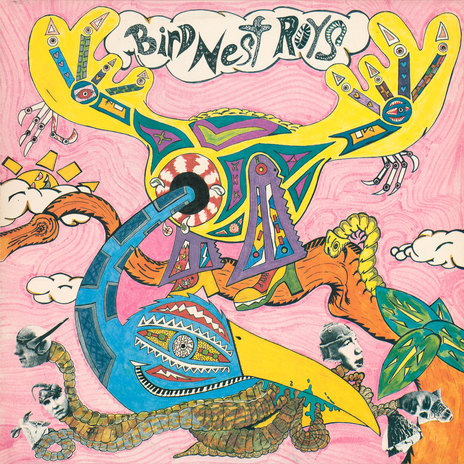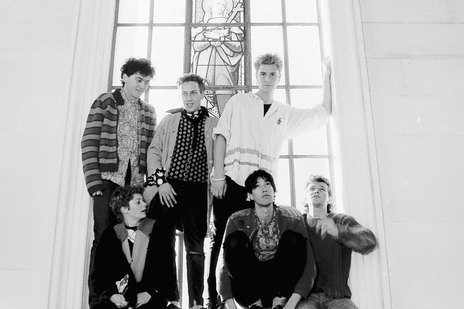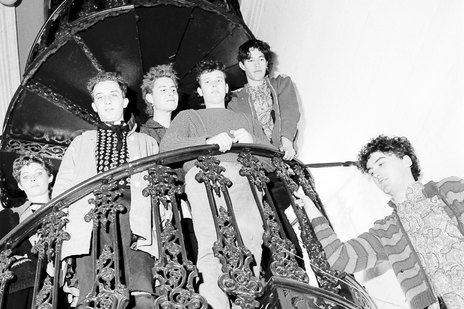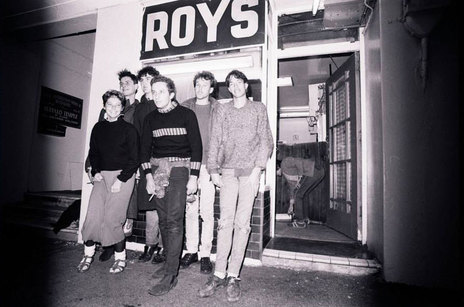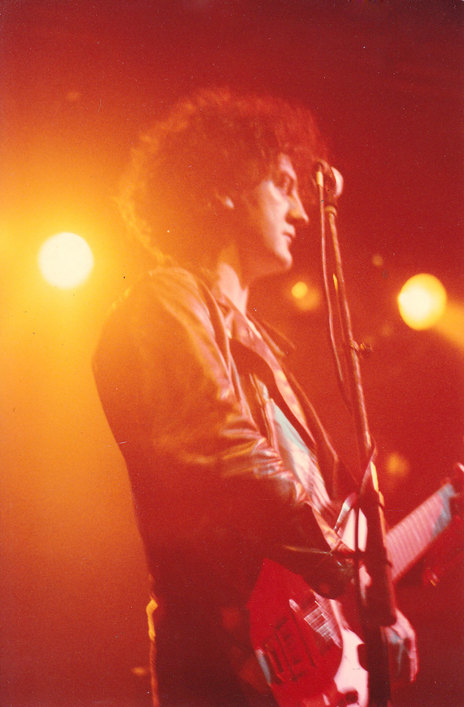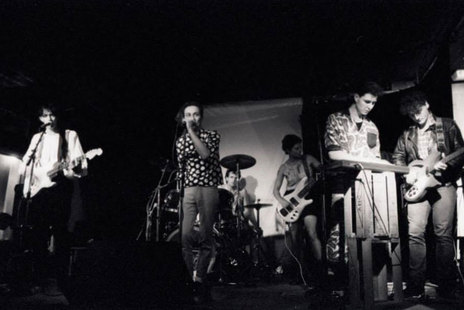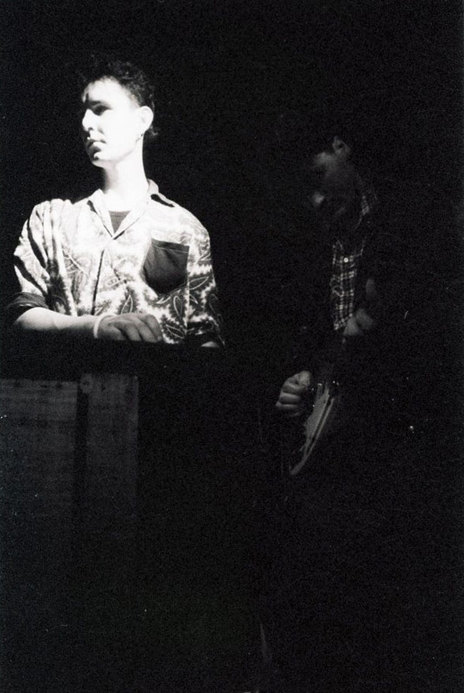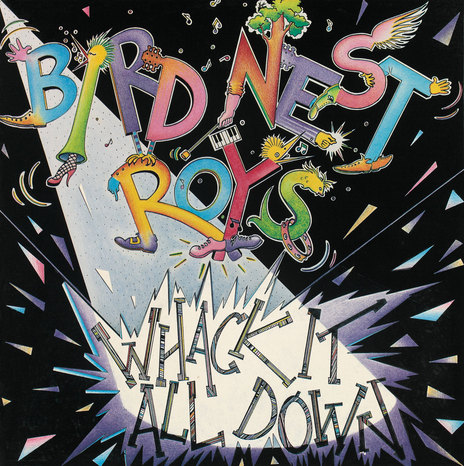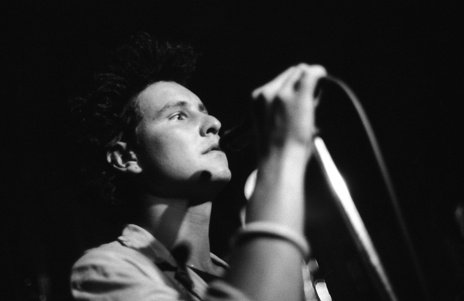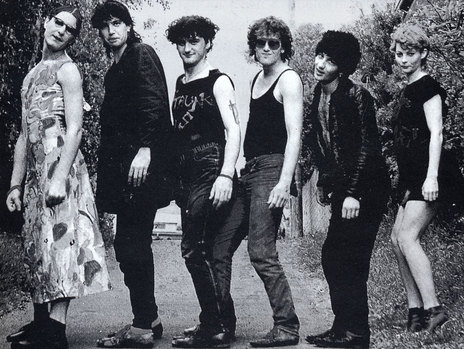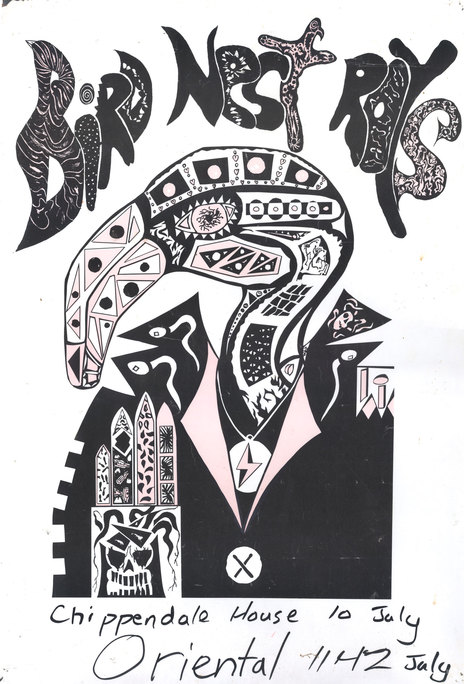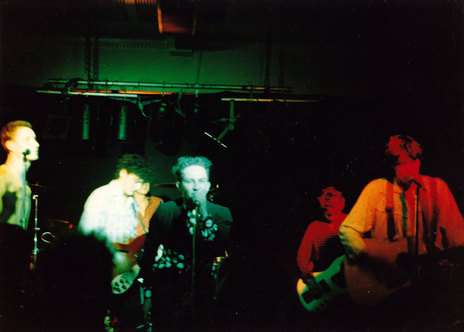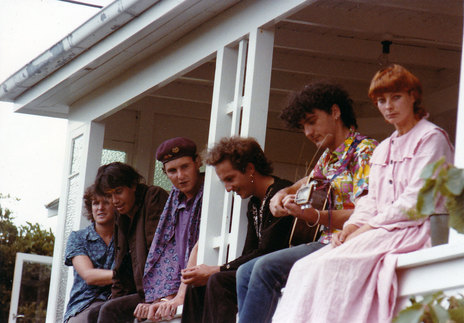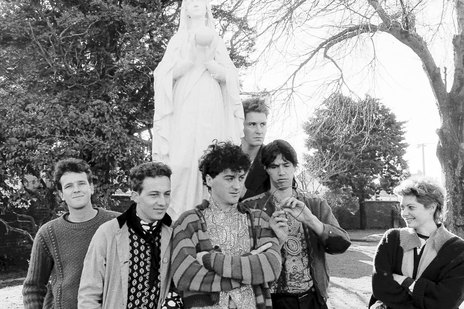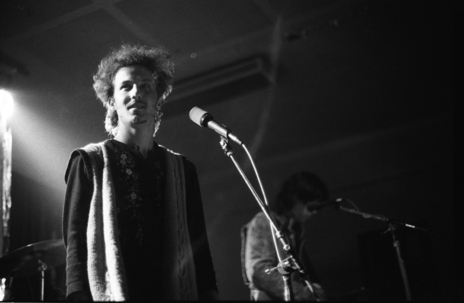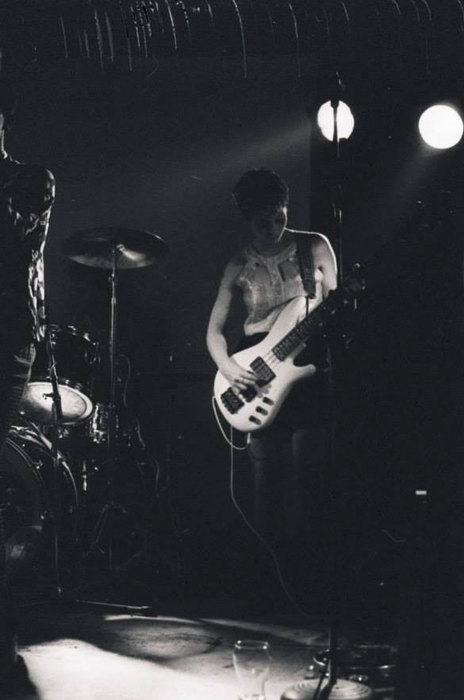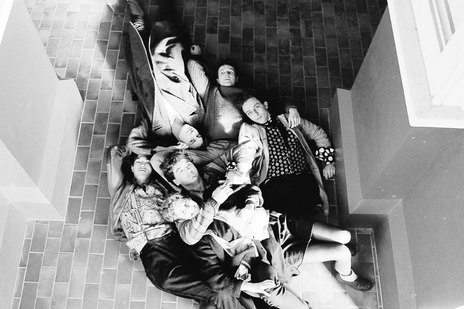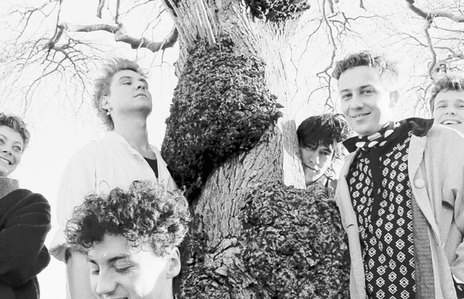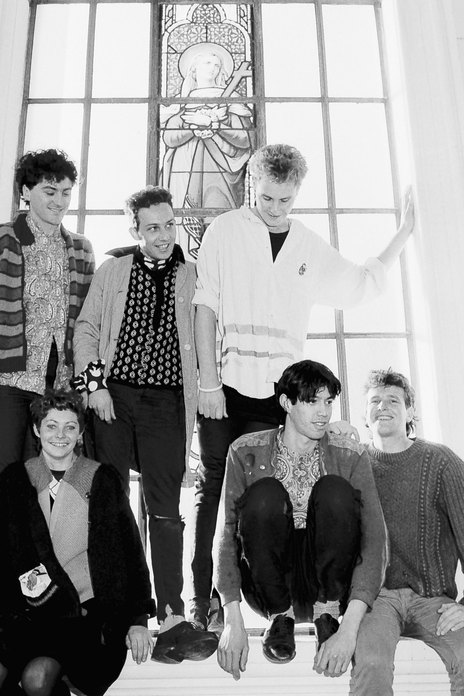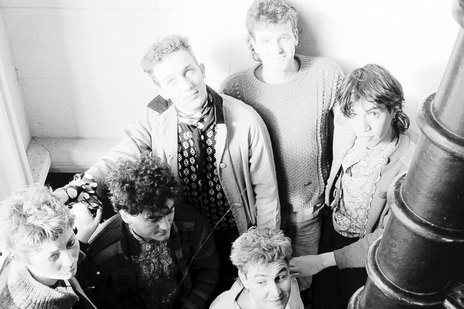“We were just obsessed with music,” explains Little Ross.
“And reading about it,” adds Big Ross.
So they were part of the crowd most weekends for the first wave of Flying Nun acts – The Chills, Sneaky Feelings, The Bats – but also the then fresh-in-the-big-smoke Dance Exponents, with whom they became friends.
“When we first went to see the Exponents, they didn’t have that many friends in Auckland,” notes Big Ross.
Fandom gradually developed into trying to make music themselves, initially with Big Ross playing drums. But when he and Joan moved to Pakiri for a few months, the rest of what would become the band started jamming with a newbie drummer, Peter Moerenhout.
“And I started thinking, well I can’t write songs on drums anyway, and switched to guitar.”
They were joined by a second guitarist, Dominic Stones, bassist Mark Byrami (who also played in the Pleasure Boys) and a tall, flamboyant young man called Warwick Wakefield on backing vocals.
“He was like the only gay guy in West Auckland,” Big Ross explains. “He used to get beaten up all the time. He’d be walking down the street and people would just stop in their cars. We got together and he was loud and interesting and he started hanging out with us.”
Warwick would rename himself Rupert E. Taylor and later take on a similar role – backing vocals and stage presence – with the Headless Chickens.
Little Ross was always going to be the lead singer.
their first gig WAS to about 100 friends, with a keg of beer as an incentive for people to turn up.
“My friend Eugene’s dad was a Pentecostal minister from Colorado, and I started going to church with them. I wasn’t religious. I only went to church because they used to sing and I’d sing in church with them. And then me and Eugene would sing Bee Gees songs. I just loved singing.”
After the difficult first attempt at songwriting (‘Bided’, which appears on their self-titled album), other songs began to come. The band played its first gig to about 100 friends at Oratia Settlers’ Hall, having paid for a keg of beer as an incentive for people to turn up.
The two Rosses discovered that they naturally sang in harmony – and the two guitarists realised they liked playing pretty much the same thing. Big Ross believes Byrami had an unexpected role in shaping the band’s sound.
“He was technically better than us. He’d say to us ‘you can’t play that chord because it’s in E’ or whatever and we’d say, nah, we like it. He overplayed – he’d do all these runs and there was no one keeping the house in order. I’ve got a theory that Dom and I developed this style of just playing chords and making a huge racket because he was all over the place. So, we just developed this thing where we’d play almost the same thing, loud, and there’d be all this ringing and harmonics.”
Eventually, Deborah Shadbolt (“Debberly Roy”) replaced Byrami. She suited the band better – and she would make a call that changed everything for the band.
Bird Nest Roys had been playing small inner-city venues like Russ le Roq’s The Venue without attracting much attention. Little Ross, the only member of the band with a job, had been finding it difficult to square the hard work and long days of laying carpets for a living with playing music.
“I knew I was holding the band up and I ended up leaving because they were getting pissed off with me. We were still good mates. And I was still desperately trying to write songs.”
Warwick took over lead vocals. It didn’t really work. “That was terrible,” Big Ross recalls. “We played one of the last gigs at Mainstreet and people were biffing cans at us.”
Little Ross soon returned, but they were on the verge of breaking up by the time they played at the Performance Café in Symonds Street in 1985.
But Deborah – who had briefly played with The Clean – invited her friend, former Toy Love drummer Mike Dooley, to the show. He was so enthused by what he heard, he insisted Bird Nest Roys be the support act for a forthcoming Tall Dwarfs show at the Windsor Castle.
It was a pivotal moment. Supports for The Builders and The Chills followed, and Bird Nest Roys stepped out of the weekend crowd on to the stage to become a key part of a thriving scene based around the Windsor. It was if they had suddenly appeared fully-formed: vocal harmonies, huge, warm wall of rhythm guitar, freaky op-shop outfits and all.
“Apart from the music, I imagine part of our appeal was that we were a disparate bunch of characters,” Big Ross recalled in his sleeve notes for the 2013 reissue album Me Want Me Get Me Have Me Love, which collected their discography. “We all dressed strangely too, the stupider the better. We would go to op shops and stock up on old ladies’ hats, blouses and various pieces of ludicrous clothing … I think we looked ridiculous, but nobody could accuse us of being boring.”
They also brought a crowd. If there was a strong element of community to the scene, that was true of Bird Nest Roys more than most. They even had their own ever-evolving language, based on the two Rosses’ longstanding fondness for wordplay.
Before long, they were invited to support The Chills on a South Island tour. They played a show with the Dance Exponents in Christchurch on the way, but the tour was really a pilgrimage to Dunedin.
“We all loved music and we all liked drinking.”
– Big Ross
“We arrived on a Sunday night,” says Big Ross. “We were sitting in our van on the main street of Dunedin and Look Blue Go Purple pulled up next to us in their van. We went straight to a party which had everyone there: David Pine, Shayne Carter, all the rest. We all loved music and we all liked drinking.”
Back in Auckland, they recorded the Whack It All Down EP for release on Flying Nun, with the Dance Exponents’ Chris Sheehan producing at Progressive Studios. Everyone agrees that the EP failed to capture the chunky warmth of the band’s live sound, but the experience cemented an enduring friendship with Progressive’s owner, Terry King.
A tour in their own right with another one of the younger Windsor Castle bands, Goblin Mix, followed. Goblin Mix’s guitarist David Mitchell had bristled at the idea that his North Shore group had anything to do with the “Dunedin sound”, but another enthusiastic meeting of hearts and minds followed their arrival there.
A self-titled album, again recorded at Progressive, better captured what the group was about, but eventually the tensions between Little Ross’s working life and the life of being in a band re-emerged, especially after he became a father. They broke up for good in 1987. Dominic moved to Dunedin, where he became a member of Snapper then The 3Ds, Warwick became Rupert and joined the Headless Chickens, and the two Rosses later formed The Tufnels.
But something else happened with Bird Nest Roys. Their records – the EP, the album and a 7” of ‘Jaffa Boy’ backed with their cover of The Hollies’ ‘Bus Stop’ – reached a nascent US indie scene, where they developed a cult following. When Pavement and Guided By Voices toured New Zealand they excitedly sought out members of this obscure group, long after it had disbanded.
“It’s still happening!” says Little Ross. “Places like Germany too. It’s so amusing for us to hear all that.”
It might have been different even three or four years later, when international links were better developed and there was more management expertise to be had. They would surely have toured outside New Zealand. But as it happened, Bird Nest Roys found their groove in Oratia, their scene in Auckland and their soulmates in Dunedin.
